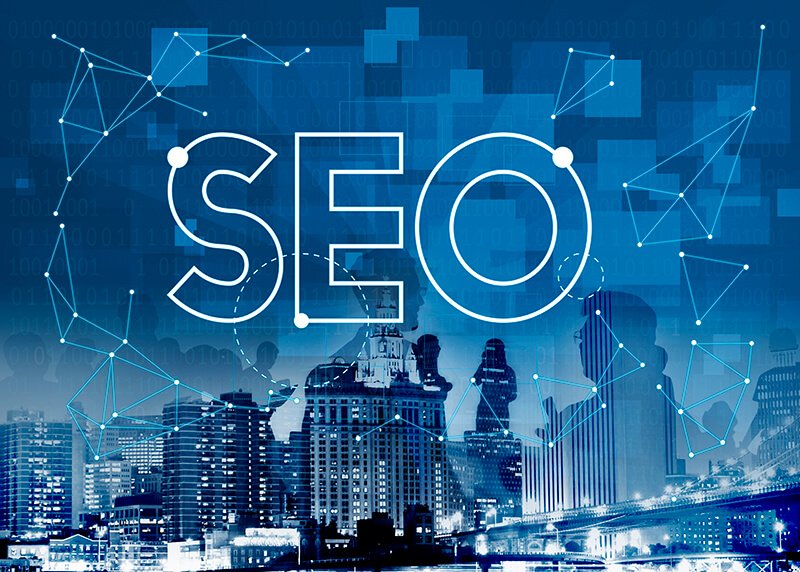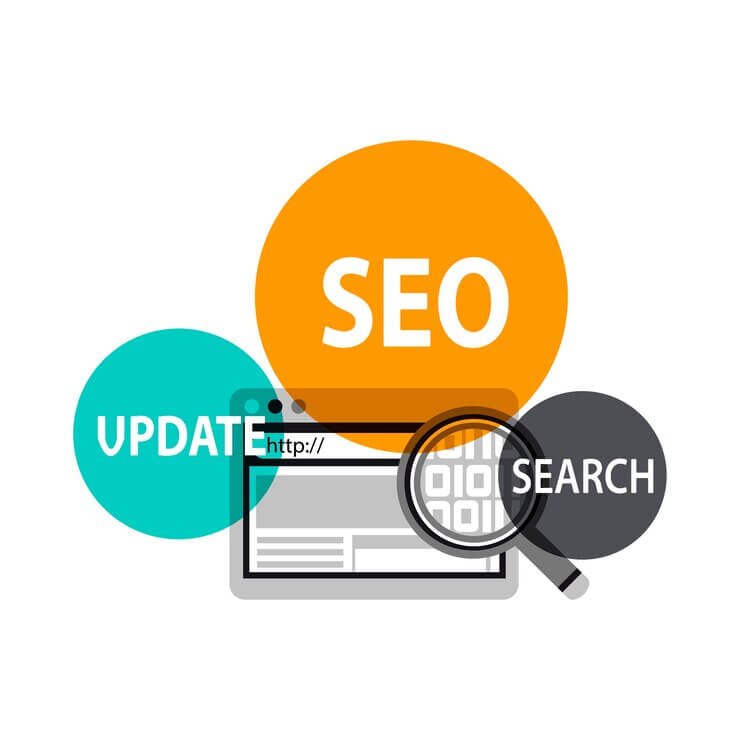Currently, having a website isn’t enough. Every business, from startups to well-established brands, competes for attention. With millions of websites across the internet, standing out can be a challenge. This is where Search Engine Optimization (SEO) becomes essential. It's not just a tool - SEO is a strategy to increase visibility, drive organic traffic, and build credibility online.
What is SEO and its importance?
SEO is the process of optimizing a website so that it ranks higher in search engine results, especially on Google, because most users choose Google as the search engine. When users search for information, products, or services, they tend to click on results on the first page. SEO aims to place websites on that coveted Google first page, making it easier for potential customers to find them. Without SEO, a website can get lost in the digital landscape.
How SEO Works?
One might wonder how SEO operates. Understanding how search engines operate and tailoring material to suit them is the core of SEO. Complex algorithms are used by search engines to assess and rank information according to its quality and relevancy. SEO services work by optimizing a website’s content, structure, and keywords to make it appealing to search engines. This includes using keywords, optimizing meta tags, enhancing page load speeds, and ensuring the website’s mobile-friendliness. When these factors align, then search engines view the website as authoritative, trustworthy, and relevant to users.

The Role of SEO in Digital Marketing
SEO serves as the cornerstone of digital marketing as a whole. An SEO-friendly approach is beneficial for all digital strategies, including pay-per-click advertising, email marketing, and social networking. By ensuring that content is valuable, discoverable, and in line with audience interests, SEO increases the efficacy of other marketing initiatives. Because of this, SEO is not merely a stand-alone technique but rather a crucial component of an all-encompassing digital marketing strategy that promotes natural and long-term growth
Benefits of SEO for Website Visibility
Here’s a brief overview of the benefits of SEO for website visibility:
- Increased Organic Traffic: SEO helps attract more visitors to your site through search engines without paying for ads.
- Improved Search Rankings: Higher rankings on search results lead to greater visibility and credibility.
- User Experience: Best SEO practices improve site structure and navigation, making it easier for users to find information.
- Cost-Effectiveness: Compared to paid advertising, SEO offers a long-term, sustainable way to drive traffic.
- Better Brand Credibility: Websites that rank well are often perceived as more trustworthy by users.
- Targeted Audience Reach: SEO allows you to target specific keywords, attracting users who are actively searching for your products or services.
- Increased Conversion Rates: With targeted traffic and improved user experience, SEO can lead to higher conversion rates.
- Valuable Insights: SEO tools provide data on user behavior, helping you make informed decisions about your content and strategy.
- Long-Lasting Results: Once you achieve a good ranking, it can be maintained with ongoing optimization, offering lasting benefits.
- Staying Competitive: Effective SEO helps you stay ahead of competitors who may not be utilizing these strategies.

Types of SEO Services
Here are the four primary types of SEO services
- On-Page SEO
- Off-Page SEO
- Technical SEO
- Local SEO.
Each service offers unique strategies to increase search engine rankings and improve user engagement.
On- Page SEO
On-page SEO refers to optimizing individual web pages to rank higher in search engines and attract relevant traffic. This type of SEO involves everything within the webpage, from the content to the code. It’s the foundation of SEO, as search engines use on-page elements to determine a page’s relevance and quality.
Key Elements of On-Page SEO:
- Website audit and analysis
- Keyword research
- Competitor analysis
- Focuses keyword add
- Meta title add
- Meta description add
- Meta keyword add
- Internal linking
- External linking
- Alt text add
- Content quality
- URL structure
- Image optimization
- Schema markup
On-page SEO these steps can greatly increase your ranking potential by enhancing the quality of your content and making sure your website complies with SEO standards.
Off-Page SEO
Off-page SEO is a type of search engine optimization that uses off-site optimizations to improve a website's or page's rankings in relevant search results. Off-site optimizations occur outside your site and include link building, local citations, guest posting and more
Key Elements of Off-Page SEO
- Backlink Building
- Social Media Engagement
- Guest Blogging
- Online Reputation Management
- Content Marketing
- Local Listings and Directories
Off-page SEO is particularly useful for increasing credibility, making it a key component of any long-term SEO strategy
Technical SEO
Technical SEO focuses on the backend elements of your website that affect search engine crawling and indexing. It deals with site performance and architecture, ensuring your website is optimized to deliver a smooth user experience and adhere to search engine requirements.
Main Areas of Focus in Technical SEO:
- Website Speed and Performance
- Mobile Friendliness and Responsiveness
- Security (SSL Certificates and HTTPS)
- Site Structure and Navigation
A technically optimized site ensures better user engagement, fewer technical errors, and higher rankings. Technical SEO is foundational for building a strong, resilient website that performs well in search results.
Local SEO
Local SEO targets searches in specific geographic areas and is crucial for businesses serving local customers. Local SEO makes it easier for potential customers in your area to find your services and products when they search online.
Core Components of Local SEO:
- Google My Business Optimization
- Local Keywords and Content
- Citations and Listings in Local Directories
With local SEO, you can reach customers actively searching for services like yours in your area, leading to higher foot traffic and sales
Why SEO Is an Ongoing Process
Search engine algorithms are constantly changing, SEO is an ongoing activity. What is effective now might not be tomorrow. SEO also entails ongoing upgrading, optimization, and monitoring. Since rivals can also be spending money on SEO, it's critical to stay ahead of the competition or risk dropping in the results. This constant development in SEO highlights the necessity of continuous services as opposed to one-time fixes.

🚀 Want to Improve your Website’s Visibility?
Accord Tech Solutions—the best web development company in New York—offers custom website development, SEO and SMM services.
FAQ
1. What is SEO?
SEO stands for Search Engine Optimization. It is the process of optimizing a website to improve its visibility and ranking on search engine results pages (SERPs) for relevant keywords. This involves technical, on-page, and off-page strategies to attract organic (non-paid) traffic.
2. Why is SEO important for a website?
SEO is important because:
-
It helps your website rank higher on search engines like Google, Bing, and Yahoo.
-
It drives organic traffic, which is often more sustainable and cost-effective than paid advertising.
-
It improves user experience by making your website faster, more accessible, and easier to navigate.
-
It builds credibility and trust with your audience, as higher-ranked sites are often perceived as more authoritative.
3. What are the benefits of SEO for a website's visibility?
The benefits of SEO for visibility include:
-
Increased organic traffic: Higher rankings lead to more clicks from search engine users.
-
Targeted audience reach: SEO helps you attract users who are actively searching for your products, services, or content.
-
Long-term results: Unlike paid ads, SEO efforts can continue to drive traffic over time.
-
Better user experience: SEO improvements (e.g., faster load times, mobile optimization) make your site more appealing to visitors.
-
Competitive edge: Outranking competitors in search results can lead to greater market share.
4. How does SEO improve website rankings?
SEO improves rankings by:
-
Optimizing website content with relevant keywords.
-
Improving site speed and mobile responsiveness.
-
Building high-quality backlinks from authoritative websites.
-
Ensuring proper technical SEO (e.g., site structure, meta tags, and XML sitemaps).
-
Creating valuable, user-focused content that meets search intent.
5. What is the difference between on-page SEO and off-page SEO?
-
On-page SEO: Refers to optimizations done directly on your website, such as keyword usage, meta tags, headers, internal linking, and content quality.
-
Off-page SEO: Involves actions taken outside your website to improve its authority, such as backlink building, social media marketing, and influencer outreach.
6. How long does it take to see results from SEO?
SEO is a long-term strategy, and results can take anywhere from 3 to 6 months (or more) to become noticeable. The timeline depends on factors like:
-
The competitiveness of your industry.
-
The current state of your website.
-
The quality and consistency of your SEO efforts.
7. Can SEO work for small businesses?
Yes, SEO is highly effective for small businesses. It helps them compete with larger companies by targeting local or niche audiences. Local SEO, in particular, can help small businesses attract customers in their geographic area.
8. What are the key components of SEO?
The key components of SEO include:
-
Keyword research: Identifying the terms your audience is searching for.
-
Content optimization: Creating high-quality, keyword-rich content.
-
Technical SEO: Ensuring your website is crawlable and indexable by search engines.
-
Link building: Acquiring backlinks from reputable sites.
-
User experience (UX): Improving site speed, mobile-friendliness, and navigation.
9. Is SEO a one-time process?
No, SEO is an ongoing process. Search engine algorithms frequently update, and competitors are constantly optimizing their websites. Regular updates, content creation, and performance monitoring are essential to maintain and improve rankings.
10. How does SEO impact mobile users?
With the rise of mobile searches, SEO ensures your website is optimized for mobile devices. Google uses mobile-first indexing, meaning it primarily uses the mobile version of your site for ranking. A mobile-friendly site improves user experience and boosts rankings.
11. What is the role of keywords in SEO?
Keywords are the foundation of SEO. They help search engines understand the content of your website and match it to user queries. Proper keyword research and usage ensure your site ranks for relevant searches.
12. Can SEO help with brand visibility?
Yes, SEO enhances brand visibility by:
-
Increasing your website's presence in search results.
-
Building trust and authority through high rankings.
-
Driving traffic to your site, which can lead to increased brand recognition.
13. What is local SEO, and why is it important?
Local SEO focuses on optimizing your website to attract local customers. It includes strategies like:
-
Creating a Google My Business profile.
-
Using location-based keywords.
-
Earning local backlinks and reviews.
It’s important for businesses with physical locations or those serving specific geographic areas.
14. How does SEO compare to paid advertising (PPC)?
-
SEO: Focuses on organic rankings and long-term results. It takes time to see results but is cost-effective in the long run.
-
PPC (Pay-Per-Click): Provides immediate visibility through paid ads but stops driving traffic once the budget runs out. A combination of both strategies is often ideal.
15. What tools can I use for SEO?
Popular SEO tools include:
-
Google Analytics: For tracking website traffic and performance.
-
Google Search Console: For monitoring search performance and fixing issues.
-
Ahrefs, SEMrush, or Moz: For keyword research, backlink analysis, and competitor research.
-
Yoast SEO or Rank Math: For on-page SEO optimization (WordPress plugins).
16. How does SEO improve user experience?
SEO improves user experience by:
-
Making websites faster and more responsive.
-
Ensuring easy navigation and clear site structure.
-
Providing valuable, relevant content that meets user needs.
-
Optimizing for mobile devices.
17. What are common SEO mistakes to avoid?
Common SEO mistakes include:
-
Keyword stuffing (overusing keywords).
-
Ignoring mobile optimization.
-
Neglecting technical SEO (e.g., broken links, slow load times).
-
Focusing only on search engines instead of users.
-
Not tracking or analyzing SEO performance.
18. How does SEO impact e-commerce websites?
For e-commerce websites, SEO:
-
Drives targeted traffic to product pages.
-
Improves visibility for long-tail keywords (e.g., "buy red running shoes size 10").
-
Enhances user experience, leading to higher conversion rates.
-
Builds trust and credibility for online stores.
19. What is the future of SEO?
The future of SEO includes:
-
Increased focus on user intent and semantic search.
-
Greater emphasis on voice search optimization.
-
Integration of AI and machine learning in search algorithms.
-
Continued importance of video content and visual search.
20. How can I measure the success of my SEO efforts?
You can measure SEO success using metrics like:
-
Organic traffic growth (via Google Analytics).
-
Keyword rankings (via tools like Ahrefs or SEMrush).
-
Click-through rate (CTR) on search results.
-
Bounce rate and time on site.
-
Conversion rates from organic traffic.
SEO isn’t a quick fix; it’s a long-term investment that requires patience and consistency he results of SEO are valuable. With the right SEO services, businesses can not only improve their rankings but also increase visibility, enhance user experience, and build lasting credibility.
